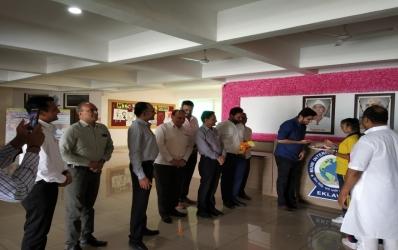Essential Education
Essential and Middle (bring down essential (Standards I to V) and upper essential (Standards VI to VIII)) instruction is obligatory and free in India. Essential training starts at age 6 with Middle/Upper Primary school instruction finishing at age 14. Tutoring is offered at state-run and tuition based schools, be that as it may, non-public schools regularly have poorer offices and framework than government schools. The territorial dialect is the medium of guidance for most elementary schools and English as a second dialect for the most part starts by review 3.
Optional Education
Optional training starts in review 9 and keeps going until review 12. The optional stage is broken into two, multi year cycles, for the most part alluded to as General/Lower Secondary School, or 'Standard X', and Upper/Senior Secondary School, or 'Standard XII'. Instruction keeps on being free at government schools, albeit private schooling is more typical at the auxiliary level. Open examinations are held toward the finish of the two cycles and concede access to review 11 and college level investigation separately. General educational programs for lower auxiliary school in India comprises of three dialects (counting the provincial dialect, an elective, and English dialect), Mathematics, Science and Technology, Social Sciences, Work/Pre-Vocational Education, Art, and Physical Education. Optional schools are associated with Central or State sheets which manage the Secondary School Certificate toward the finish of review 10.
In view of execution in the initial two years of auxiliary school, and upon the SSC results, understudies may enter Senior/Upper Secondary School. Upper Secondary School offers the understudies an opportunity to choose a 'stream' or grouping of study, offering science, trade, and expressions/humanities. Instruction is regulated both in schools or two-year junior schools which are frequently partnered with degree allowing colleges or universities. Educational modules for the Higher Secondary Certificate Examination is dictated by the sheets of optional instruction of which there are 31. Despite the fact that the HSCE is the most well-known Standard XII examination, the All India Senior School Certificate (CBSE), Indian School Certificate, Certificate of Vocational Education (CISCE), Senior Secondary Certification (NIOS), Intermediate Certificate and the Pre-University Certificate are likewise advertised.
Professional Education
Youngsters who don't wish to go ahead to tertiary training, or who neglect to finish auxiliary school regularly enlist at exclusive professional schools that have some expertise in only one or just a couple of courses. Not at all like in the United States, professional and specialized instruction isn't exceptionally specific and is fairly an expansive review of learning appropriate to business. The educational programs offered is made up out of a dialect course, establishment courses, and electives, of which half of electives are reasonable in nature. Examinations toward the finish of professional training are led by the All India and State Boards of Vocational Education. SSP International School | Navli| Anand
Tertiary Education
India's advanced education framework is exceedingly concentrated and experiencing substantial changes since its commencement in 1947. To a great extent dependent on the British arrangement of instruction, instructive strategy is regularly creating.
College instruction is regulated by the University Grants Commission (UGC), or, in other words the advancement of advanced education, distributing assets, and acknowledgment of establishments in India. The National Accreditation and Assessment Council (NAAC) was built up by the UGC to survey colleges and school dependent on an in order positioning framework running from A++ to C. The evaluation and Accreditation is extensively utilized for understanding the Quality Status of an establishment and demonstrates that the specific organization meets the gauges of value as set by the NAAC. Investment in the accreditation procedure of NAAC is deliberate.
The All-India Council of Technical Education (AICTE) was likewise settled to manage quality control of specialized instruction and direct foundation of new private expert schools. Every perceived college are individuals from the Association of Indian Universities (AIU), or, in other words the dispersal of data and fills in as a guide to the administration, UGC, and the organizations themselves.
There are different kinds of tertiary organizations in India, specifically Universities (Central, State, Open), Universities of National Importance, and Deemed colleges. Guidance of the larger part of understudies, right around 80%, is finished at associated schools with the educational programs, examinations, and last degree being planned and allowed by the college. Constituent and Autonomous schools likewise exist; however less normal despite the fact that they do appreciate more noteworthy self-sufficiency concerning educational programs advancement and evaluation.
Admission to college classes by and large requires finish of the Standard XII long periods of tutoring and permission to college depends only upon execution on the examination. Four year college educations in the fields of expressions, science, social examinations, and trade are only multi year programs. Confirmation programs exist and range from 2 – 3 years long and are given at polytechnics, generally in a specific building or mechanical field, and finishing in an Advanced or Post Diploma. Proficient Bachelor's degrees, in the fields of Medicine, Architecture, Law, and so forth., change from 4 – 5.5 years relying on the control.
Admission to graduate (Master, Post Graduate Diplomas, MBA, and so forth.) programs is endless supply of a four year certification (3 or 4 years, contingent regarding the matter) with a Second Class pass or higher. Non-college instruction in Management is prominent in India, with numerous establishments offering Post Graduate Diplomas in Management, enduring 2 years and for the most part comparable to a MBA. Doctoral level degrees require at least a few years and comprise of research and a postulation or exposition.
Starting in 2015, the Choice Based Credit System (CBCS) was presented by the UGC in endeavors to empower a more interdisciplinary way to deal with instruction and offer greater adaptability and decision to understudies. The change likewise presented an institutionalized evaluation and reviewing plan dependent on a 10 point scale. Since its commencement, the framework has confronted examination by understudies and chairmen, taking note of that in spite of the fact that the framework guarantees decision and adaptability, the foundation of the instructive framework presently might be excessively feeble yet, making it impossible to help the update. Muni International School












No Comments